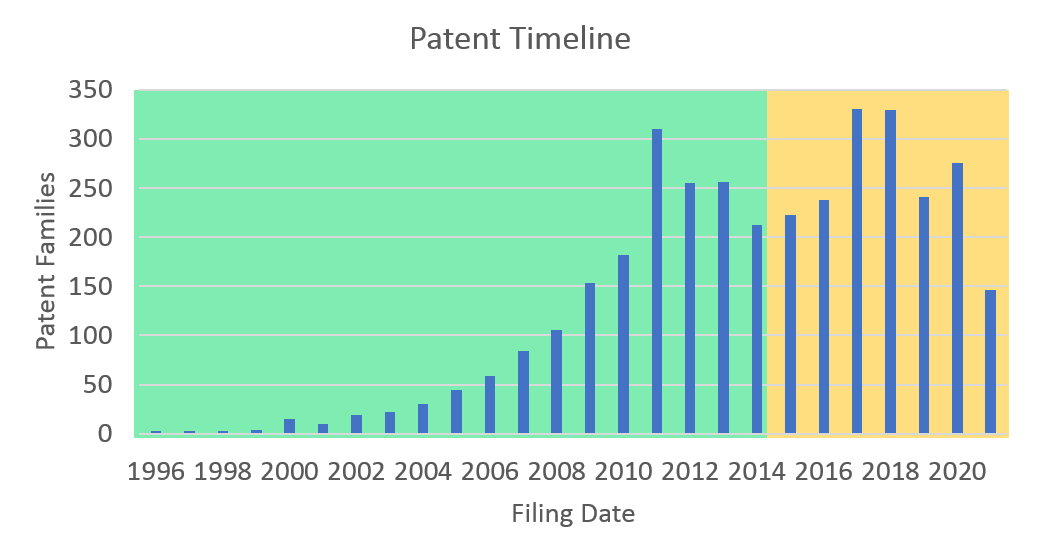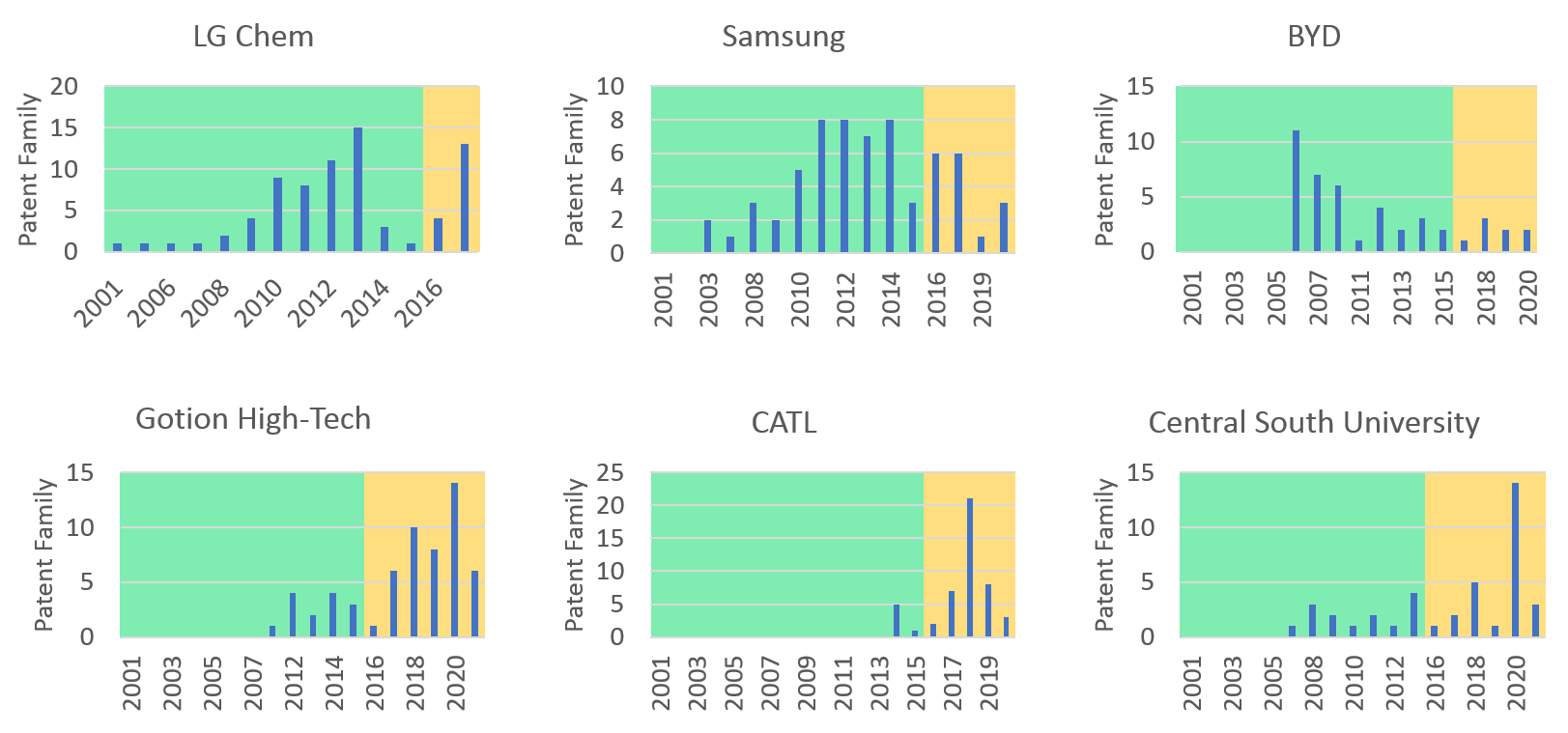
LFP Cathode Patent Registration
In the last few days, President Biden invoked the Defense Production Act of 1950 to speed up domestic production of lithium-ion battery-critical raw materials such as lithium, cobalt, nickel, manganese, and graphite in the US. Due to the conflict between Russia and Ukraine, prices of raw materials for cathode materials have fluctuated and increased unprecedentedly. One of the alternatives to tertiary NCM cathode materials is lithium-iron-phosphate (LFP). None of the critical metals such as nickel, cobalt, and manganese are used in its chemical structure; the process for its production is mature. With better thermal stability and stable electrochemical properties than NCM cathodes, it is considered to be safer. In the past, the device's low voltage and energy density had limited its application. Car manufacturers have welcomed this cathodic substance in recent years due to the advancements in automotive battery technology and the use of low-energy cells. The production costs of affordable electric vehicles are reduced by Tesla, BYD, and Volkswagen using LFP cathodes.
This matter was verified by looking at the patent filing dates in Word. As shown in Figure 1, a study of patent registration trends over the last three decades shows that since Goodenough and others published their first patent in 1996, the trend has exponentially risen until 2011. But the trend has stopped and even lowered until 2015. However, the momentum has recovered, and the number of patent families reached a new high in 2018.

Figure 1. Investigating the time process of patent registration in the field of LFP cathode
The top patent companies or applicants are LG Chem, Samsung, Gotion High-Tech, BYD, CATL, and the University of Central South in China. Several studies indicate that CATL, Gotion High-Tech, and the University of Central South showed an upward trend after 2015 and actively engaged in R&D, unlike competitors (Figure 2). After a significant drop in 2013, LG Chem also increased its number of patents. This news is in keeping with the trend of these two companies developing LFP-based batteries in recent years. CATL has provided lithium-ion batteries with LFP cathodes to Tesla and Gotion high-tech for Volkswagen in recent years.

Figure 2. Investigating the time process of patent registration based on LG, Samsung, BYD, Gotion, CATL, and central south university manufacturing companies.
As a result, intense competition in products like electric vehicles can lead to the refocus on undervalued technologies like LFP, which could resolve current issues.

